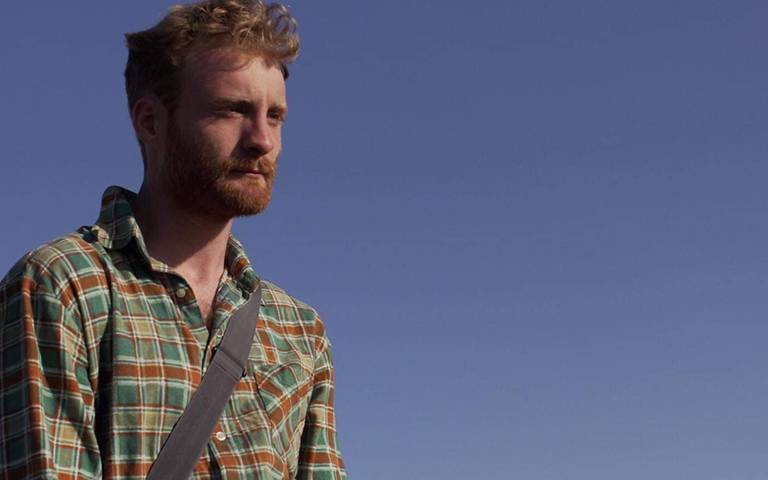Jack Greenhalgh, MSc Aquatic Conservation, Ecology and Restoration
Meet Jack, a graduate from our MSc Aquatic Conservation, Ecology and Restoration programme.

3 January 2024
He tells us about how his fascination with the natural world led to an interest in pond restoration, as well as further study around the world.
Why were you interested in studying an MSc in Aquatic Conservation, Ecology and Restoration?
“Studying Aquatic Conservation, Ecology and Restoration seemed like the most natural step for me in following my curiosity and deepening my understanding of the natural world.
“I was also interested in how our understanding of the natural world can be applied in the real world to enact tangible positive change.”
And why did you to choose to study at UCL?
“I was drawn to UCL by its world-class reputation for teaching and research, and UCL Geography’s fantastic location in the heart of central London and all that that offers.
“Studying at UCL is a privilege that provides you with perhaps the best environment of any other university in the UK to meet people from diverse backgrounds and cultures from around the world”
What were the most interesting or engaging things you learned on the course?
“The most interesting thing I learnt on the course is the process of farmland pond restoration that the course convenor Professor Carl Sayer has pioneered.
“Pond restoration is fascinating because it pulls multiple elements of society together (conservationists, farmers, landowners, gamekeepers) to make a difference.
“I have watched as an overgrown cluster of trees in a field has been transformed by a small team into an oasis for life in a desert of intensive arable land in an afternoon.
“There’s not a lot of time for watching though, expect to get your boots muddy!”
Can you tell us about any particularly memorable experiences from your time as a Master's student with us?
“The course has opportunities for multiple field trips to Norfolk, Dorset, Scotland, and China.
“The field trip to Norfolk is a particular highlight as it marks the beginning of the course and is the perfect way to break the ice with everyone else on the course and the teaching staff.
“The warmest memories I hold from the course, however, are of times spent drinking instant coffee from a thermos in a farmer’s field or next to a river, sharing stories, and laughing lots together while we work in the sultry summer sun.”
What did you go into after graduating from the course? What impact has the course had on your career so far?
“UCL Geography is an institution that nurtures independent thinking and curiosity.
“As a result, I discovered my identity as a researcher and acoustic ecologist at UCL Geography, which subsequently defined my research as a PhD student at the University of Bristol, and now as postdoctoral researcher at the Institute of Pyrenean Research in northern Spain.”
Would you recommend studying Aquatic Conservation, Ecology and Restoration in the Department and why?
“If you’re interested in deepening your understanding of the natural world and making a positive and tangible difference to the state of nature then this is absolutely the course for you.
“This course is so much more than writing essays and attending lectures though.
“Professor Car Sayer has created a community of current and former students that stay in touch, support each other, and meet regularly years after their time at UCL.
“If you let it, studying at UCL Geography will nurture you, support you, and connect you with friends old and new long after you graduate.”
More Information
Interested in following in Jack’s footsteps? Find out more about our MSc Aquatic Conservation, Ecology and Restoration course and see our other degrees in the Study section.
 Close
Close

